9 Week Old Baby – Development, Milestones & Care

- 9 Week Old Baby Development
- Nine-Week-Old Baby Milestones
- Feeding
- Sleeping
- Some Sleeping Tips for Your 9-Week-Old
- Behaviour
- Crying
- 9-Week-Old Baby Poop
- 9-Week-Old Baby Care Tips
- Tests and Vaccinations
- Games and Activities
- Consult a Doctor if
- FAQs
During these initial two months, your 9 week baby’s cognitive and motor skills have been rapidly developing. As their curiosity expands, you may notice them exploring the world around them with newfound enthusiasm. They might be attempting to grasp objects, providing adorable moments of trial and error. Their laughter becomes contagious, filling your home with joy. Observing their attempts at coordination, such as reaching for objects or attempting to roll over, adds a delightful dimension to your parenting journey. As your baby becomes more interactive, cherish these moments of discovery, as they pave the way for a multitude of developmental milestones in the exciting months ahead. For a 9-week-old baby, what to expect is explained below.
9 Week Old Baby Development
So, how big is a baby at 9 weeks? In a 9-week-old baby, a growth spurt will be quite substantial when compared to anything before that. His hearing will already be completely developed. You might notice that your baby starts noticing the subtle differences between different sounds and react to them accordingly. If you start playing his favourite song, he will kick his legs animatedly and listen carefully. Switch it off between and he will be upset. Try playing a slower song or a faster song and you will see him either like it or even drift off to sleep.
Around this time, your baby is also discovering his hands and experimenting with the grip. Now is the most opportune time to give him a rattle. By figuring out the sound and trying his best to emulate it, he will start developing the coordination between hands to eyes in a much better manner. This learning of coordination starts developing faster than usual, primarily because their eyes are now able to perceive 3-dimensional space and depth. It is still in the initial stages but quite better than before.
[Also Read: 2 Months Old Baby Development]
Nine-Week-Old Baby Milestones
For a 9-week old baby, weight gain will be nearly around a kilo to a kilo and a half more than it was since his birth. This is a healthy milestone to look for and is accompanied by many others.
Having discovered the presence of hands and legs and understanding how they work, there will be further degrees of motion as your baby starts understanding bending the arm at the elbow and the legs at the knees. This will then make their punches and kicks more powerful than before, and be able to aim them properly. All these action-filled movements will be filled with more grunts and cooing sounds, as your baby tries to show you anything new that he has learnt. Keep conversing with him in a variety of tones and modulations.
To try and perceive things better, your baby will even reach out to touch your face or grab on to your hair. If you are a fan of danglers, it is best to keep them in the cupboard since the naughty little one will go for them the first chance he gets. He will also interact with other people, and with other babies, too. Though there might not be any conversation, having a social life at this stage itself is quite helpful.
[Also Read: 2 Months Old Baby Milestones]
Feeding
The tendency to feed on both breasts will be even stronger than before now. Your body might need to get used to it but that will happen in quite a short time. Many mothers feel that since their baby is more than 2 months old, they might need more food than required. That isn’t true. As long as your baby is happily breastfeeding, is gaining weight properly and sleeping well, there is no need for additional food items or formula milk at this age. Since your baby is 9-week old, teething might be occurring as well, which could also end up in him suckling at your breast a little harder than usual.
[Also Read: 2 Months Old Baby Food]
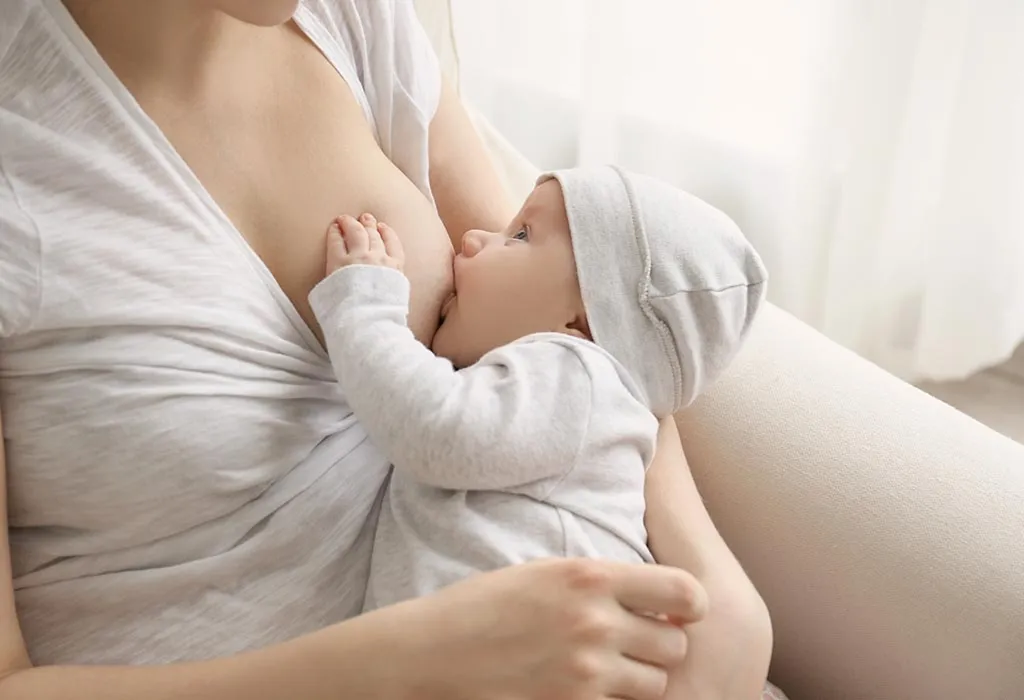
Sleeping
If your baby is not used to having a dummy nipple in his mouth while sleeping, that is the best decision of all time. Generally, when babies are 2 months old, they get used to those dummy nipples and then fail to sleep properly if the nipple falls off in the midst of their nap. If your baby is already used to it, start weaning them gradually from that so as to let them sleep without it. It might take a few days but is beneficial in the long run.
Since your baby has grown both in length and size, you might need to find a larger cloth to wrap him while he sleeps. Continuing to use smaller cloth could constrict his movements in an uncomfortable fashion and lead to broken sleep.
[Also Read: 2 Months Old Baby Sleep]
Sample Sleep Schedule
As parents, establishing a consistent sleep schedule for your 9-week-old baby is crucial for their well-being and development. Here’s a sample 9-week-old schedule for sleep to guide you through this stage, taking into account the recommendations for optimal infant sleep.
- Morning Wake-Up Time: Typically, your baby may wake up around 7.00 AM.
- Nap #1: Aim for a morning nap around 8.30 AM – 10.30 AM, lasting about 1-2 hours.
- Nap #2: Plan for an afternoon nap starting at 11.30 PM – 1.00 PM, with a duration of 1.5 hours.
- Nap #3: Consider a short catnap around 3.00 PM – 4.00 PM.
- Nap #4: 5.30 PM -6.30 PM
- Bedtime Routine: Initiate a soothing bedtime routine at 7:30 PM to prepare your baby for sleep.
- Night Sleep: Aim for your baby to be asleep by 8.00 PM for a good night’s rest.
- Midnight: Dream feed
Some Sleeping Tips for Your 9-Week-Old
Ensuring that your 9-week-old gets adequate and quality sleep is crucial for their growth and overall well-being. Here are some valuable sleeping tips tailored for your little one at this stage:
- Establish a Consistent Bedtime Routine: Create a calming pre-sleep routine, such as a warm bath or gentle lullabies, to signal that it’s time for sleep.
- Encourage Daytime Play and Exposure to Light: Promote a natural circadian rhythm by exposing your baby to daylight during awake periods, helping regulate their sleep-wake cycle.
- Create a Comfortable Sleep Environment: Ensure the sleep space is quiet, dark, and comfortably cool, minimizing disturbances that may disrupt your baby’s sleep.
- Watch for Sleep Cues: Pay attention to your baby’s cues for tiredness, such as eye rubbing or yawning, and initiate the nap or bedtime routine promptly.
- Practice Safe Sleep Guidelines: Place your baby on their back to sleep, use a firm mattress, and keep the sleeping area free of toys or loose bedding to reduce the risk of Sudden Infant Death Syndrome (SIDS).
- Respond to Night Wakings With Comfort: If your baby wakes during the night, provide comfort and avoid overstimulation, helping them learn to self-soothe gradually.
Behaviour
Your baby’s cooing and grunting start maturing into gargle-resembling laughter at times when they are a little too excited. In certain times of the day, he will be more responsive and will end up giving the most adorable smiles and make sounds along with you. This can make for interesting bathing times or early morning exercises for both of you.
With supervised tummy time being continued, by this age, they will be able to lift their head properly and look straight ahead. Using their arms to support them will be more possible now, but not for long. They will keep falling over repeatedly and still try to keep doing it. All of that’s natural, as long as they don’t hurt themselves on a hard surface.
Crying
Around 2 months is one of the peak periods when babies end up crying a lot. Even the slightest disturbance in your 9-week old baby sleep patterns can cause them to lose their cool and indulge in an extended crying routine. Other reasons for their unexplained crying could range from exhaustion, pain, or even mere irritation.
Sure, certain reasons for crying might be pain or illness but most of the times, you can tell if they are actually in pain or simply crying without reason. In such a scenario, you can keep your baby in the crib and continue with your activities. Close the door lightly if needed to prevent the crying from disturbing you. If the crying still continues after 5 minutes, take them in your arms and cuddle them a bit. Try using a sling to hold the baby and carry on with your activities.
9-Week-Old Baby Poop
As your baby grows, it’s common for her bowel movement patterns to undergo changes, potentially resulting in fewer diaper changes—a welcome relief for your budget. In the initial newborn phase, breastfed infants typically poop after each feed, while formula-fed babies may have around five bowel movements daily in the initial weeks.
Around 1-2 months of age, your baby’s bowel movements may become less frequent, possibly leading to days without any dirty diapers, which is generally normal. Babies who are 2 months or older might have one bowel movement a day.
Crying or slight straining during pooping is usual and doesn’t necessarily indicate constipation, as long as the stool remains soft. Constipation is rare in exclusively breastfed babies due to the natural laxative in breast milk. Formula-fed infants have a slightly higher risk, and constipation may result from formula preparation errors.
If your baby’s bowel habits change significantly, causing discomfort, unusual smells, or the presence of blood in the diaper, it’s advisable to consult your baby’s doctor for further guidance.
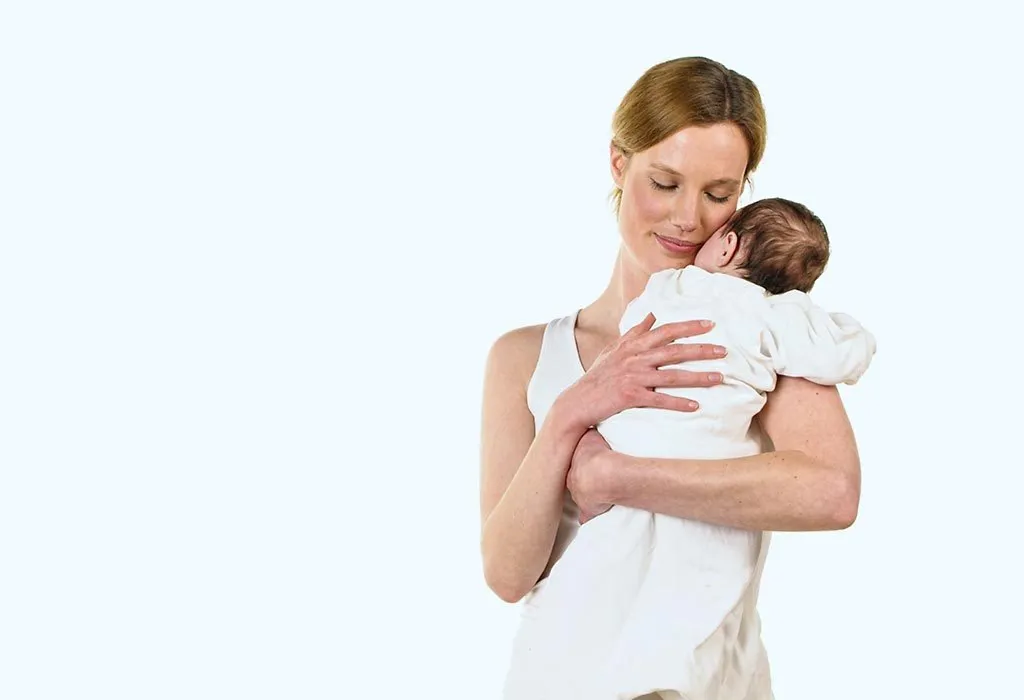
9-Week-Old Baby Care Tips
- Make sure your baby alternates between breasts if he wants to or if he needs more milk than usual.
- If your baby cries a lot, try to hold him close or coo in his ears. By soothing him down, he can fall asleep quickly.
- A baby might cry or make sounds if he wants to play or simply see your face. Make a note of certain sounds and see if they match with the need.
- Take your baby outside the house for some fresh air and have nice conversations with him. He will love the new sights or even fall asleep in the calmness of it.
[Also Read: 2 Months Old Baby Care]
Tests and Vaccinations
There are no specific vaccines to be administered in the 9th week of your child’s age as long as all the previous vaccines have been completed fully.
Games and Activities
This is a great time to further develop the auditory senses of your child. You can collect a variety of items from the house that make all sorts of sounds. Squeaky toys, crumply bags, bubble wrap, steel items, and so on. Avoid any electronic sounds for now. Then start making one sound at a time while looking at your baby. Don’t show him the object right away. Once he starts understanding the sound, show the object and make the sound in front of him. Then, hand over it to him and let him try to make it himself. Seeing you make the funny sounds will make him happy. But seeing himself capable of making the same sounds like you, will give him immense joy and excitement.
With a comparatively stronger upper body and neck, you can start having practices of sitting upright and playing games. Initially, use a few pillows to make your baby lie in a slightly inclined position. Then gently pull his arms very slowly and let him sit upright. Make sure he has enough time to hold his neck straight, in line with his shoulders. Once straight, let him down on the pillows again. Make funny sounds that rise up and down with the movement. Not only will it be immense fun for the baby, but it will help develop the necessary strength as well. Playing with his arms while you do so can be an added fun element.
[Also Read: 2 Months Old Baby Games and Activities]

Consult a Doctor if
At this stage, there are times when your baby’s eyes could be a little more watery than usual. If this has been present since birth, it is fine. However, if you notice it out of the blue, there might be a chance that your baby has contracted conjunctivitis. Hence, it is important to bring this to your doctor’s notice, who will usually prescribe using a baby-friendly eye drop solution if the diagnosis is correct. Keep all clothing items hygienic and your hands clean if this were to be the case.
If there is a diaper rash, treating it using breastmilk is the best bet. If it seems to get more severe over time, then it could be a skin-related condition that needs to be examined by the doctor.
FAQs
1. How Often Should a 9 Week Old Baby Go Between Feeds?
A 9-week-old baby typically feeds every 2-3 hours, totaling around 8-12 feedings in a 24-hour period. However, individual variations exist, and cues from the baby, such as hunger and satisfaction, should guide feeding frequency.
2. How Far Can a 9-Week-Old See?
At 9 weeks old, a baby’s vision is improving, and they can see objects and people up to a distance of around 8-12 inches. Their focus is still developing, so they prefer high-contrast patterns and bold shapes.
3. Can a 9-Week Baby See Colours?
While a 9-week-old baby can see colors, their vision is not fully developed. They may prefer high-contrast colors like black and white or bold, primary colors. Over time, their ability to distinguish a broader spectrum of colors will continue to improve.
Babies are a delight at this stage and also a little irritating. Their crying increases but their level of activities and interactions increase as well. Make the best of these times and remember these memories, for all of them will be quickly a matter of history as your baby is growing up rapidly.
References/Resources:
1. Infant and toddler health; Mayo Clinic; https://www.mayoclinic.org/healthy-lifestyle/infant-and-toddler-health/in-depth/infant-development/art-20048012
2. Important Milestones: Your Baby By Two Months; Center For Disease And Prevention; https://www.cdc.gov/ncbddd/actearly/milestones/milestones-2mo.html
3. Development & Milestones for Infants (Birth – 12 months); M I Kids Matter; https://www.michigan.gov/mikidsmatter/parents/infant/milestones
4. Your Child’s Development: 2 Months; Nemours Kids Health; https://kidshealth.org/en/parents/development-2mos.html
5. Back to Sleep, Tummy to Play; American Academy of Pediatrics; https://www.healthychildren.org/English/ages-stages/baby/sleep/Pages/Back-to-Sleep-Tummy-to-Play.aspx
6. Checkup Checklist: 2 Months Old; American Academy of Pediatrics; https://www.healthychildren.org/English/ages-stages/Your-Childs-Checkups/Pages/Your-Checkup-Checklist-2-Months-Old.aspx
Previous Week: 8 Weeks Old Baby
Next Week: 10 Weeks Old Baby
Was This Article Helpful?
Parenting is a huge responsibility, for you as a caregiver, but also for us as a parenting content platform. We understand that and take our responsibility of creating credible content seriously. FirstCry Parenting articles are written and published only after extensive research using factually sound references to deliver quality content that is accurate, validated by experts, and completely reliable. To understand how we go about creating content that is credible, read our editorial policy here.







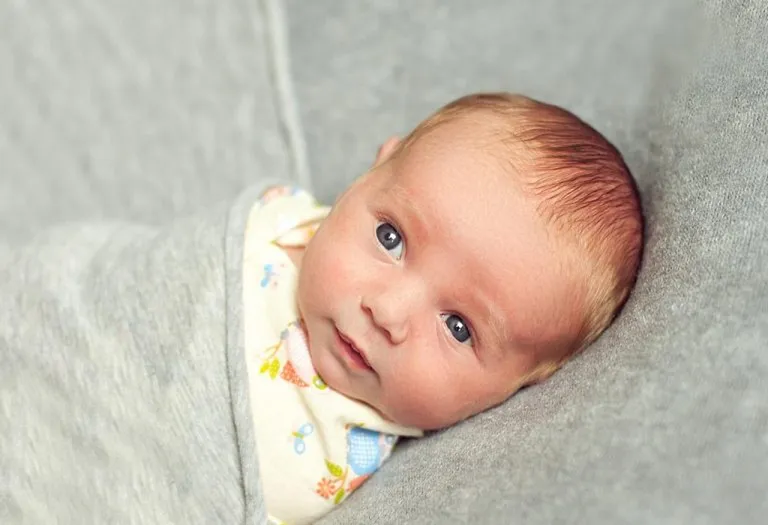

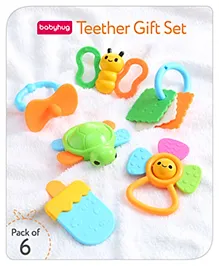

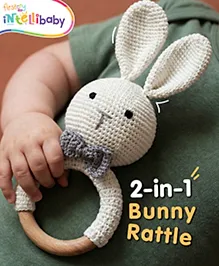
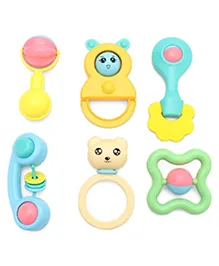
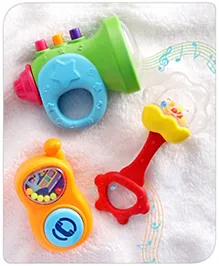
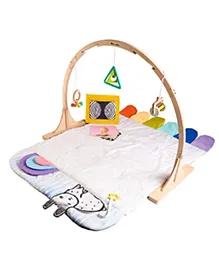
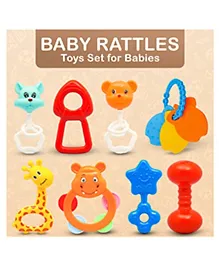
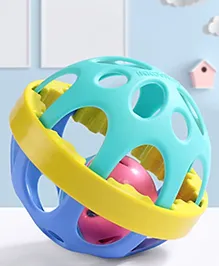
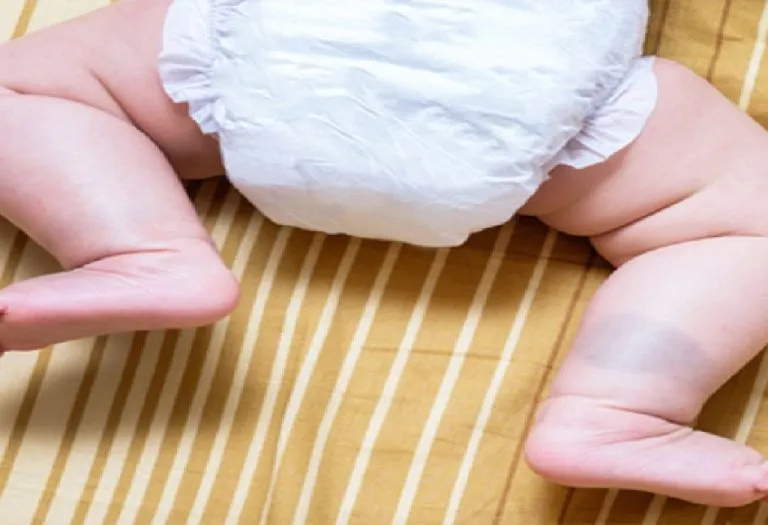




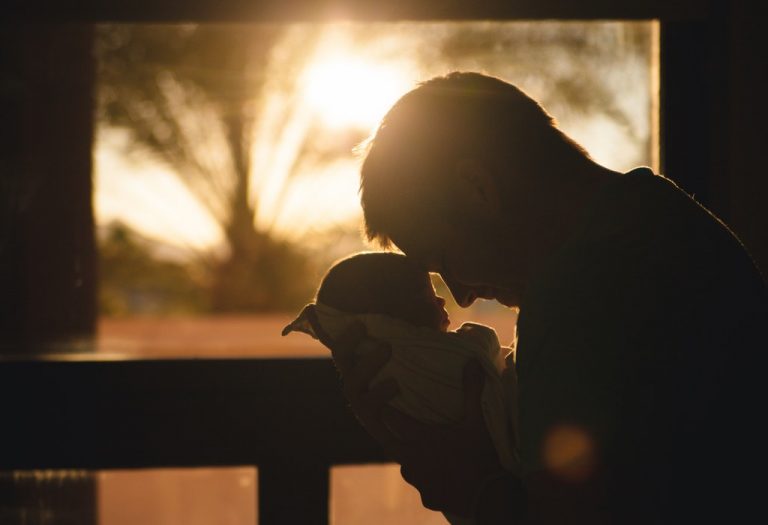

.svg)


















